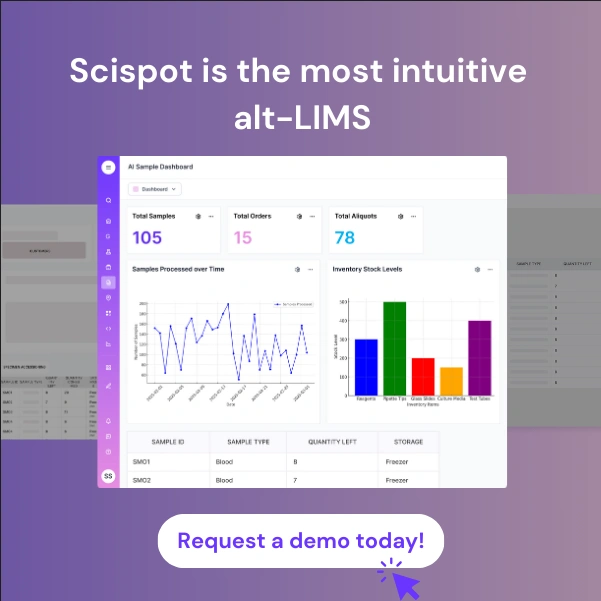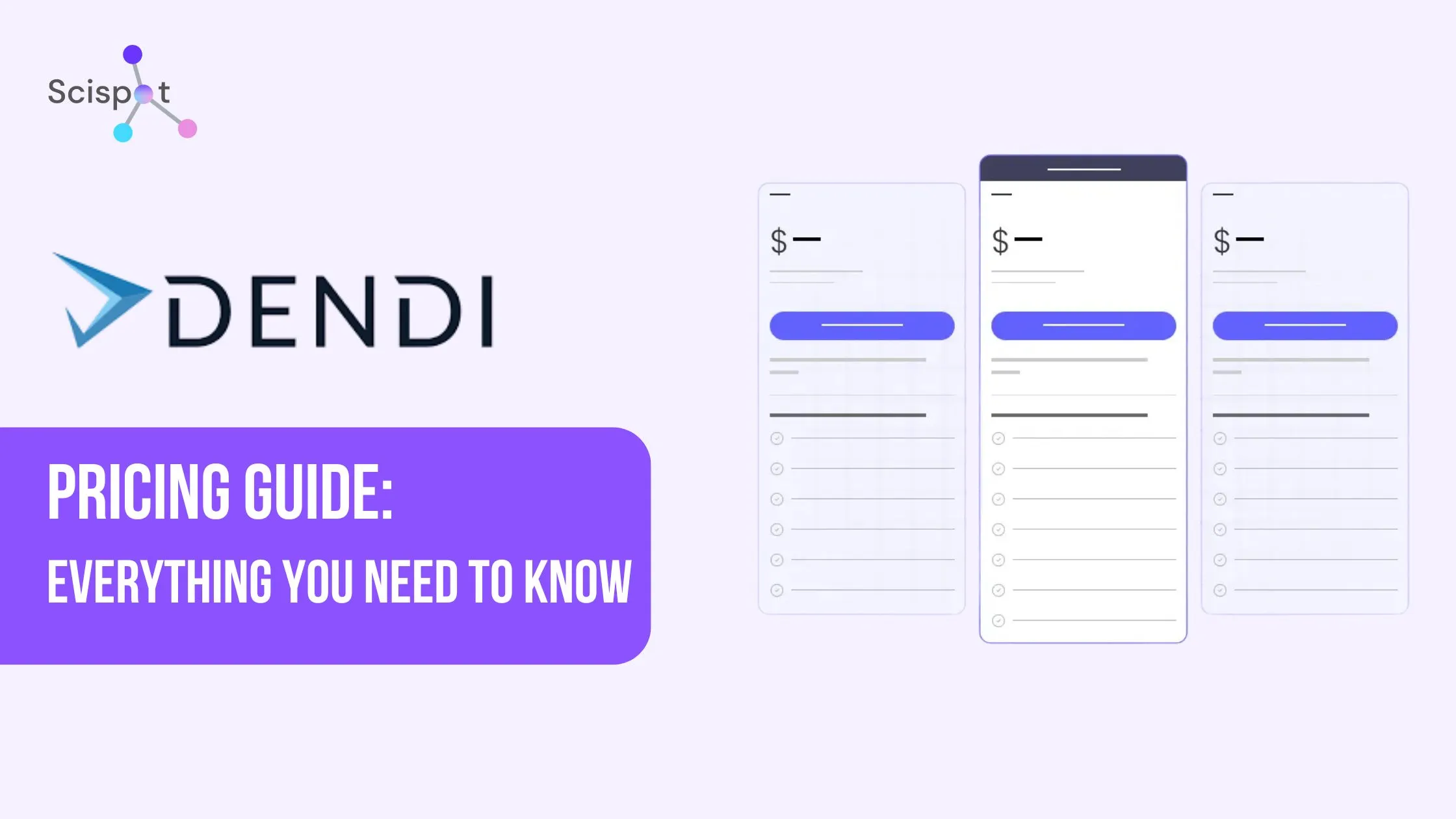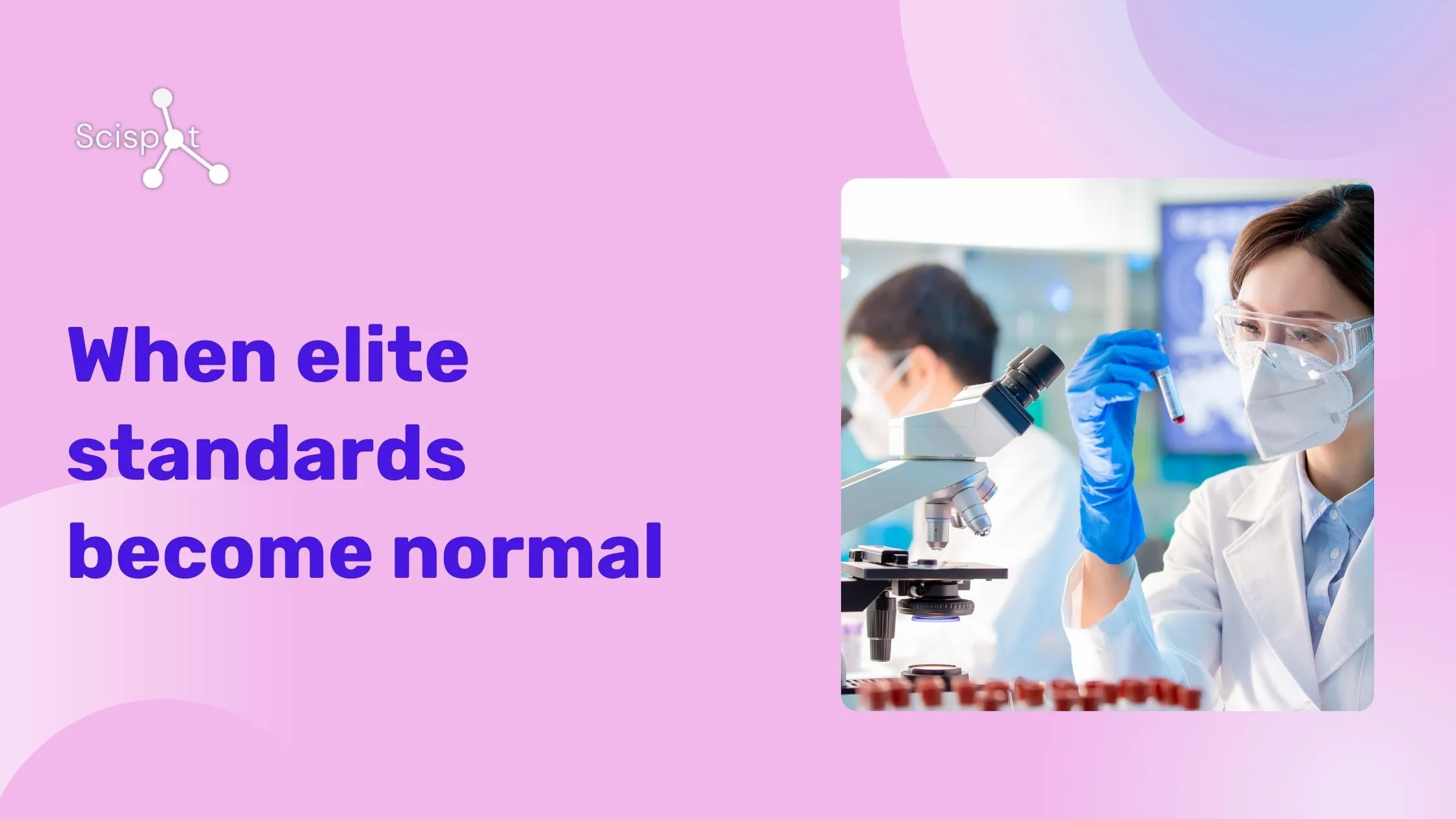Every lab director faces the same challenge when selecting a laboratory information system. You need transparent pricing, reliable performance, and a platform that grows with your operation without breaking the budget.
Dendi LIS pricing starts at $1,250 monthly, positioning itself in the premium segment of cloud-based laboratory systems. While this might seem reasonable for a comprehensive LIS, the reality involves additional costs, performance limitations, and feature gaps that many labs discover only after implementation.
This guide examines real customer experiences, analyzes total cost of ownership, and explores why forward-thinking labs are choosing more comprehensive alternatives that deliver better value for their investment.
Dendi LIS Pricing Overview
Dendi LIS pricing follows a two-tier subscription model designed to capture different market segments. The platform targets clinical laboratories performing high-complexity diagnostics including molecular testing, toxicology, pharmacogenomics, and genomics workflows.
The Dendi LIS price structure includes unlimited users across both tiers, which can provide value for larger teams compared to per-user pricing models. However, the qualification requirements for startup pricing aren't publicly defined, requiring direct sales consultation to determine eligibility.
How much does Dendi LIS cost extends beyond monthly subscriptions to include implementation fees, integration costs, and ongoing technical requirements that can significantly impact total ownership expenses.

Dendi LIS Pricing Plans Breakdown
Startup Lab Incentive Pricing
The entry-level Dendi LIS pricing begins at $1,250 per month for qualified startup laboratories through their limited-time incentive program. This plan includes unlimited user accounts, client portal access, and support for multiple laboratory locations.
The startup pricing targets new laboratories seeking to minimize initial operational costs while accessing modern LIS capabilities. However, customer feedback reveals that qualification criteria remain opaque, with transition triggers to enterprise pricing creating budget uncertainty for growing labs.
This plan includes lifetime product updates and comprehensive customer support, providing value compared to systems charging separately for these services. The 27-day average implementation timeline represents one of the fastest in the industry.
Enterprise Pricing Structure
Established laboratories require custom quotes for Dendi LIS cost through their enterprise tier. This pricing model promises unlimited users, unlimited test volume, and comprehensive support with regular platform updates.
Customer experiences indicate enterprise quotes can range from $3,000-$8,000 monthly or higher, representing significant cost increases from startup rates. The lack of transparent enterprise pricing creates challenges for laboratories attempting long-term budget planning and cost forecasting.
The custom quote approach allows Dendi to optimize pricing based on laboratory size, testing volume, and integration complexity, but this flexibility comes at the cost of pricing predictability for customers.

Implementation Costs and Hidden Fees
Setup and Integration Expenses
While basic setup is included in Dendi LIS pricing, implementation fees start at $5,000 for standard deployments. Complex integrations with existing EHR systems, specialized instruments, or legacy databases often require additional professional services ranging from $5,000-$15,000.
Each instrument interface, EHR connection, and third-party system integration carries separate fees, creating escalating costs for laboratories with complex workflows. This pricing structure particularly impacts research laboratories requiring connections to multiple analytical instruments and data management systems.
Customer feedback reveals frustration with these escalating integration costs, especially when essential functionality requires additional paid integrations beyond the base platform subscription.
Data Migration and Training Costs
Data migration from existing systems frequently involves additional consulting fees, particularly for laboratories with complex historical data requirements. While standard support is included in the Dendi LIS price, extensive training for large teams may require premium support packages.
The platform's rapid 27-day implementation timeline, while impressive, sometimes results in standardized configurations that don't adequately address complex organizational requirements, potentially necessitating costly post-implementation modifications.

Performance Limitations and Customer Concerns
System Performance Under Load
Despite marketing claims of "unlimited" capabilities, customer reviews reveal significant performance issues as data volumes increase. One verified customer specifically noted: "At times the pages load slowly and or require reloading multiple times".
These performance limitations suggest that while Dendi may not impose artificial limits on users or test volumes, the underlying infrastructure struggles to maintain acceptable responsiveness as laboratories scale operations. This becomes particularly problematic for high-throughput laboratories requiring consistent system performance.
Customer Support and Customization Limitations
Customer feedback reveals mixed experiences with technical support quality and platform flexibility. One customer reported: "Dendi never does anything I ask. I am used to working with EMR's that take their customers requests seriously and want to adjust their programs accordingly. Dendi always just says, 'Sorry, it just doesn't work that way'".
This feedback pattern indicates that Dendi's support model may be inadequate for customers with complex technical requirements or specialized workflow needs, particularly research laboratories requiring extensive customization beyond standard clinical workflows.

Clinical Focus Limitations for Research Applications
Research Workflow Inadequacies
Dendi LIS explicitly targets clinical laboratories performing diagnostic testing, creating significant limitations for research organizations requiring advanced data analysis, experimental design support, and scientific computing capabilities. The platform's feature set is optimized for standardized clinical testing procedures rather than the diverse, experimental workflows common in research environments.
Research laboratories typically require sophisticated data visualization, statistical analysis tools, experimental planning modules, and research data management capabilities that extend beyond Dendi's clinical diagnostic focus. Customer feedback reveals that research organizations often find Dendi's capabilities insufficient for specialized requirements, particularly in custom assay development and experimental data analysis.
Limited Research Integration Capabilities
While Dendi promotes integration capabilities, the framework is primarily optimized for common clinical systems rather than the diverse software ecosystem typical in research environments. Research laboratories report challenges integrating with specialized scientific software, research databases, and analytical tools essential for their operations.
This limitation forces research laboratories to either accept reduced functionality or invest in custom integration development, significantly increasing technical complexity and operational costs beyond the base Dendi LIS pricing.
Comprehensive Comparison: Dendi LIS vs Scispot

Pricing Transparency and Long-term Value
The most significant difference between Dendi and Scispot lies in pricing transparency and total cost of ownership. Where Dendi LIS cost requires custom quotes and qualification assessments, Scispot offers straightforward pricing starting at $10 per month for basic features and scaling to $40 per month for enterprise capabilities.
This transparent pricing model represents potential annual savings exceeding $14,000 compared to Dendi's startup pricing alone. Scispot's predictable scaling eliminates the budget uncertainty created by Dendi's opaque transition triggers from startup to enterprise pricing.
More importantly, Scispot's comprehensive architecture eliminates the need for multiple software subscriptions that typically cost laboratories $3,000-$8,000 monthly when purchased separately. Customers report 40-60% reductions in total software costs compared to pieced-together solutions requiring platforms like Dendi LIS.
Platform Architecture and Functionality Depth
Dendi's focus on clinical laboratory workflows creates limitations for organizations requiring comprehensive laboratory management capabilities. Scispot provides a complete laboratory operating system integrating LIMS, ELN, inventory management, CRM, project management, and advanced analytics within a unified platform.
This architectural difference eliminates data silos that plague traditional LIS implementations. While Dendi relies on conventional database structures that separate different laboratory functions, Scispot's graph database-powered approach treats all laboratory data as interconnected knowledge, enabling sophisticated cross-functional analysis.
The unified architecture proves particularly valuable for research laboratories requiring seamless data flow between experimental design, sample management, analytical workflows, and results interpretation. Customers report generating insights that were impossible with previous LIS systems due to data integration limitations.
Integration Ecosystem and Technical Capabilities
Scispot's API-first architecture connects with over 7,000 applications and 200+ laboratory instruments through an extensive marketplace, far exceeding Dendi's more limited integration framework. This comprehensive connectivity includes seamless connections to popular research tools like Benchling, Tableau, Salesforce, and specialized scientific equipment from major manufacturers.
The depth of integration capabilities means laboratories can connect their entire technology stack without custom development work. Implementation projects that typically require 6-12 months with traditional LIS platforms are completed in 6-12 weeks with Scispot's pre-built connectors.
Scispot's proprietary GLUE integration engine creates real-time data connections between instruments and software, eliminating manual data transfer and associated errors that plague traditional laboratory workflows. This technology represents a fundamental advancement over conventional integration approaches used by platforms like Dendi LIS.

Advanced Analytics and AI Capabilities
While Dendi offers basic automation features, Scispot incorporates cutting-edge AI capabilities that define the future of laboratory management. The platform's Scibot assistant generates complex visualizations, performs real-time data analysis, converts existing documents into interactive experiments, and suggests workflow optimizations based on usage patterns.
These AI features deliver measurable operational value. Laboratories using Scispot's AI capabilities report 30-50% reductions in routine administrative tasks and significantly faster data analysis cycles compared to traditional LIS workflows. The platform's machine learning algorithms continuously improve recommendations and automation based on each laboratory's specific operational patterns.
Scispot's investment in AI infrastructure ensures laboratories receive increasingly sophisticated capabilities through regular platform updates, while traditional systems like Dendi LIS require expensive upgrades or entirely new software purchases to access similar functionality.
Implementation Speed and User Experience
The contrast in implementation timelines between Dendi LIS and Scispot often surprises laboratory managers. While Dendi LIS cost includes implementation periods of 3-6 months, Scispot's modern architecture and pre-configured templates enable most laboratories to become operational within 6-12 weeks.
This accelerated deployment translates directly to faster ROI realization. Laboratories switching to Scispot often recoup their first year's investment within 4-6 months through improved efficiency and reduced software complexity, compared to 12-18 month payback periods typical with traditional LIS implementations.
User adoption rates significantly favor Scispot due to its intuitive, consumer-grade interface design. Internal surveys indicate 85% of laboratory staff become proficient with Scispot within their first week, compared to 4-6 week learning curves reported with traditional LIS platforms. This rapid adoption reduces training costs and accelerates productivity improvements.
Scalability and Future-Proofing Advantages
Scispot's architecture is designed specifically for the evolving requirements of modern laboratory operations. Unlike Dendi's clinical diagnostic focus, Scispot supports seamless transitions between research and clinical workflows, accommodating laboratories that expand their service offerings or evolve their operational focus.
The platform's no-code/low-code configuration capabilities enable laboratories to adapt workflows, create new modules, and modify operations without expensive development projects. This flexibility proves crucial as laboratories respond to changing market demands, regulatory requirements, and technological advances.
Scispot's comprehensive approach eliminates the vendor management complexity associated with multiple software solutions. Laboratories report significant administrative savings when consolidating from 5-8 separate systems to Scispot's unified platform, reducing technical overhead while improving operational consistency.

Who Should Consider Dendi LIS
Traditional Clinical Laboratories with Standard Workflows
Laboratories focused exclusively on routine clinical diagnostics might find Dendi's straightforward approach adequate for basic operations. The platform handles standard specimen processing, result reporting, and billing functions competently for organizations with predictable workflow requirements.
Smaller clinical laboratories that don't require advanced analytics, research capabilities, or extensive customization might appreciate Dendi's managed approach compared to more comprehensive platforms requiring technical configuration. The 27-day implementation timeline can be attractive for organizations needing rapid deployment of basic LIS functionality.
Organizations with Limited Technical Resources
Laboratories without dedicated IT support might prefer Dendi's managed service approach over platforms requiring more technical configuration. The company's support team handles most technical aspects, potentially reducing the burden on laboratory staff lacking technical expertise.
However, this managed approach becomes limiting as laboratories grow and require more customization, advanced features, or integration flexibility that exceeds Dendi's standardized offerings.
Making the Strategic Choice for Laboratory Success
Evaluating Total Cost of Ownership
How much does Dendi LIS cost in the context of your laboratory's complete operational requirements? The answer extends beyond monthly subscription fees to include integration costs, performance limitations, and opportunity costs associated with feature gaps.
Forward-thinking laboratories benefit from platforms like Scispot that offer transparent, predictable pricing combined with comprehensive functionality. The ability to consolidate multiple software requirements into a single platform often provides better long-term value despite different initial cost structures.
Assessing Growth and Evolution Requirements
Laboratories planning significant expansion or operational evolution should carefully evaluate whether Dendi LIS pricing and capabilities align with long-term strategic objectives. The platform's clinical diagnostic focus may become limiting for organizations expanding into research applications or requiring advanced analytical capabilities.
Platforms designed for comprehensive laboratory management, like Scispot, often provide better scalability and adaptation flexibility as organizational requirements evolve. The ability to modify workflows, add capabilities, and integrate new technologies without platform migrations represents significant strategic value.
Integration Ecosystem Considerations
Modern laboratories require seamless connectivity with diverse software applications, analytical instruments, and data management systems. Dendi LIS cost should be evaluated against platforms offering more extensive integration ecosystems and advanced connectivity capabilities.
Comprehensive platforms with extensive integration marketplaces, like Scispot's 7,000+ application connections, often provide better long-term value by eliminating the need for multiple specialized tools and custom integration development.

Conclusion: Choosing the Future of Laboratory Management
The laboratory information system landscape is rapidly evolving toward comprehensive, AI-powered platforms that treat data as a strategic asset rather than simple storage. While Dendi LIS pricing might appear competitive initially, the hidden costs, performance limitations, and feature gaps create significant challenges for laboratories seeking long-term operational excellence.
Modern laboratories require more than basic clinical workflows. They need platforms that seamlessly integrate research and clinical operations, provide advanced analytics capabilities, and scale predictably as operations grow. The choice between traditional LIS platforms and next-generation laboratory operating systems will determine your organization's competitive position for years to come.
Laboratories that invest in comprehensive platforms like Scispot today position themselves for sustained growth, operational efficiency, and technological leadership in an increasingly complex market. The transparent pricing, advanced capabilities, and unified architecture deliver measurable value that extends far beyond traditional LIS functionality.
Ready to transform your laboratory operations with a platform designed for the future? Book a personalized demo with Scispot today and discover how leading laboratories are achieving 40-60% cost reductions while gaining advanced AI capabilities, comprehensive integrations, and unified data management.







.webp)
.webp)



